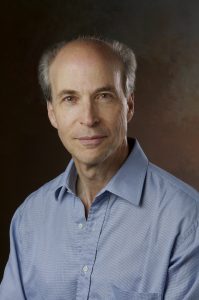Biography of the keynote

Professor Roger David Kornberg is an American biochemist and professor of structural biology at Stanford University’s School of Medicine who was solely awarded the Nobel Prize in Chemistry in 2006 for his studies of the molecular basis of eukaryotic transcription. This explained the process by which genetic information from DNA is copied to RNA.
All organisms are to some extent controlled by their genetic makeup. In order for the organism to make use of the information stored in the genes, a copy must first be made and transferred to the outer parts of the cells. The process by which the genes are copied is called transcription. Transcription makes an RNA copy of a region of the DNA that comprises the gene in question. The RNA is subsequently transported out of the nucleus, where it performs its function. Most of this so-called messenger RNA serves as instructions for protein production in a process called translation. In most cases proteins perform a cellular function specified by the gene. The enzyme responsible for the synthesis of protein-coding mRNA is termed RNA polymerase II. Professor Kornberg has worked to understand this process in eukaryotes, a huge evolutionary group encompassing all organisms with well-defined nuclei, everything from yeast to humans. In contrast to bacterial RNA polymerases, eukaryotic RNA polymerases are alone incapable of gene transcription and require a complex assembly of accessory proteins to accomplish this task in an accurate and efficient manner.
Roger Kornberg and his research group have made several fundamental discoveries concerning the mechanisms and regulation of eukaryotic transcription. While a postdoctoral fellow working with Aaron Klug and Francis Crick at the MRC in the 1970s, Kornberg discovered the nucleosome as the basic protein complex packaging chromosomal DNA in the nucleus of eukaryotic cells. His research group at Stanford later succeeded in the development of a faithful transcription system from baker’s yeast, which they then used to isolate in a purified form all of the several dozen proteins required for the transcription process. The team went on to determine the structure of the entire set of transcription proteins at near atomic resolution.
Using this system, Professor Kornberg made the major discovery that transmission of gene regulatory signals to the RNA polymerase machinery is accomplished by an additional protein complex that they dubbed Mediator. As noted by the Nobel Prize committee, “the great complexity of eukaryotic organisms is actually enabled by the fine interplay between tissue-specific substances, enhancers in the DNA and Mediator. The discovery of Mediator is therefore a true milestone in the understanding of the transcription process,” and this made the detailed description of the mechanism Professor Kornberg provided exactly the kind of “most important chemical discovery” referred to by Alfred Nobel in his will.
If transcription stops, genetic information is no longer transferred into the different parts of the body. Since these are then no longer renewed, the organism dies within a few days. Understanding of how transcription works has therefore a fundamental medical importance. Disturbances in the transcription process are involved in many human illnesses such as cancer, heart disease and various kinds of inflammation.
The capacity of stem cells to develop into different types of specific cells with well-defined functions in different organs is also linked to how the transcription is regulated. Understanding more about the transcription process is therefore important for the development of different therapeutic applications of stem cells. In 1959 Roger Kornberg’s father, Arthur Kornberg, received the Nobel Prize in Medicine for studies of how genetic information is transferred from one DNA molecule to another in a process called DNA replication. Roger and Arthur Kornberg are the sixth father-son pair to win Nobel Prizes.
Apart from the Nobel Prize, Professor Roger Kornberg’s honors include the General Motors Cancer Research Foundation’s Alfred P. Sloan Jr. Prize, Le Grand Prix Charles-Leopold Mayer from the French Academy of Sciences and the Welch Prize. He is a member of the Advisory Board of the International Peace Foundation, the United States National Academy of Sciences, a fellow of the American Academy of Arts and Sciences and an honorary member of the Japanese Biochemical Society. His closest collaborator has been his wife, Dr. Yahli Lorch, and they have three children, Guy, Maya and Gil.
